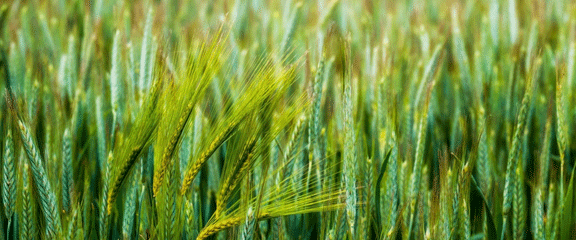In a landmark advancement for Indian agriculture, the Bhabha Atomic Research Centre (BARC) in Mumbai has launched eight novel crop varieties, including wheat, rice, and oilseeds. Developed through radiation-induced mutation breeding, these crops are tailored to thrive in India’s diverse and challenging agricultural landscapes. The introduction of these varieties marks a crucial step toward achieving higher yields, enhanced nutrition, and better climate resilience.
Tackling Wheat Challenges with Climate-Resilient Varieties
Wheat, a staple crop in India, faces the dual threats of rising temperatures and fungal diseases. Addressing these issues, BARC has introduced two innovative wheat varieties:
- Trombay Jodhpur Wheat-153 (TJW-153): Designed for Rajasthan’s arid conditions, this variety is heat-tolerant and resistant to fungal diseases like blast and powdery mildew, ensuring stable yields even under heat stress.
- Trombay Raj Vijay Wheat-155 (TRVW-155): Created for Madhya Pradesh, this variety features enhanced zinc and iron content, critical for nutritional security. Its superior chapati-making quality and disease resistance add further value for farmers.
Advancing Rice Cultivation with Tailored Varieties
Rice, another staple crop, often suffers from lodging and low yield under stress conditions. BARC’s new rice varieties are set to address these challenges:
- Bauna Luchai-CTLM Rice: Developed for Chhattisgarh, this dwarf variety resists lodging and offers a 40% higher yield than traditional landraces.
- Sanjeevani Rice: Enriched with over 350 phytochemicals, this variety combines therapeutic benefits with immunity-boosting properties, catering to health-conscious consumers.
Enhancing Oilseed Productivity
Oilseeds play a vital role in India’s agricultural economy, yet productivity remains low in saline and degraded soils. BARC has introduced specialized varieties to overcome these challenges:
- Trombay Konkan Khara Rice: This salt-tolerant rice is ideal for Maharashtra’s coastal areas, enabling cultivation in previously unproductive saline soils.
- Trombay Jodhpur Mustard-2 (TJM-2) and Chhattisgarh Trombay Mungfali (CGTM): These oilseed varieties promise higher yields and resilience to regional adversities.
Collaborative Approach
These breakthroughs result from BARC’s collaborations with state agricultural universities, ensuring that each variety is tailored to local conditions. Farmers can now benefit from crops that not only increase productivity but also offer improved nutritional quality and disease resistance.
The introduction of these eight crop varieties by BARC underscores the role of scientific innovation in addressing critical agricultural challenges. By leveraging radiation-induced mutation breeding, BARC has delivered high-yield, climate-resilient, and nutritionally enhanced crops that align with India’s vision for sustainable agriculture. These advancements promise to bolster food security, improve farmer livelihoods, and adapt to changing climate patterns, marking a transformative step for Indian agriculture.
Error





